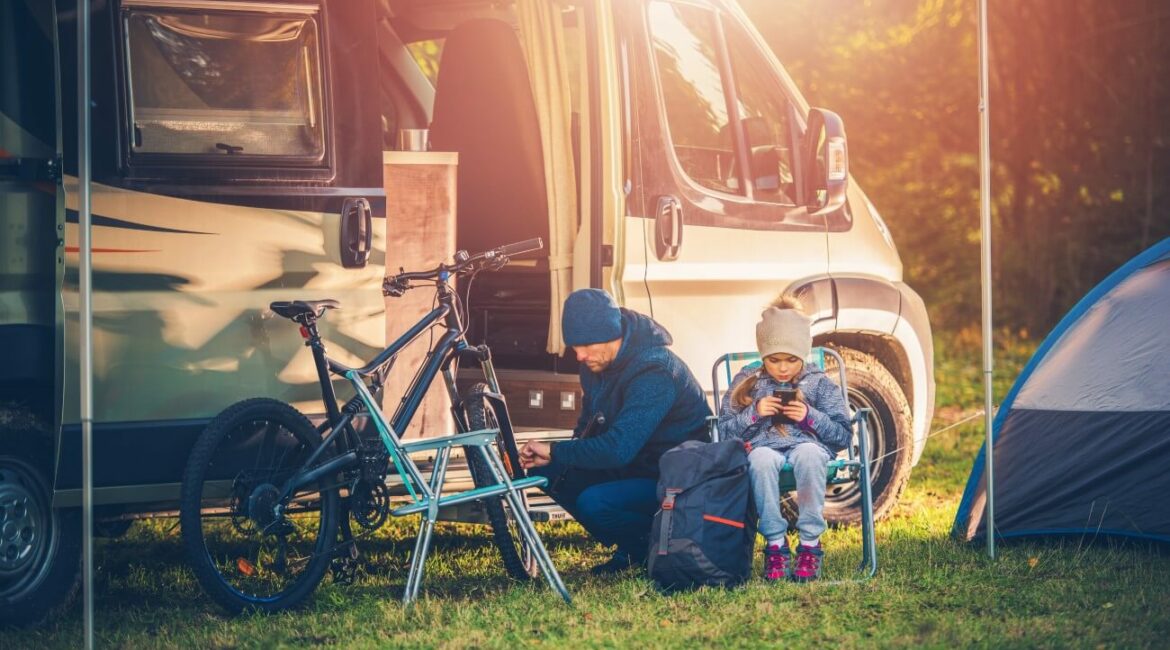Embarking on an adventure with the freedom of the open road, the convenience of home amenities, and the discovery of unseen territories becomes an enthralling reality with RV rentals. Although the idea marries excitement with ease, navigating through the rental process requires keen attention to detail and a shield against potential pitfalls. From meticulously inspecting your temporary home on wheels to safeguarding yourself against hidden fees and common rental scams, ensuring a smooth journey from start to finish demands a blend of informed decisions and strategic precautions. This guide aims to steer you confidently through your RV rental journey, equipping you with practical advice and foresight to dodge obstacles, and pave the way for a memorable exploration of the vast, welcoming horizons ahead.
Before You Book
- Read the rental agreement carefully. Make sure you understand all of the terms and conditions, including the rental rate, insurance coverage, and damage waiver.
- Inspect the RV thoroughly before you drive it off the lot. Look for any signs of damage, and make sure all of the appliances and fixtures are working properly.
- Ask about the RV’s maintenance history. Find out when the RV was last serviced and what kind of maintenance has been done on it.
During Your Rental
- Be careful not to damage the RV. RVs can be expensive to repair, so be careful not to damage them. This means avoiding driving on rough roads, parking in tight spaces, and using the RV in extreme weather conditions.
- Keep the RV clean. RV rental companies typically charge a cleaning fee if the RV is returned dirty. To avoid this fee, be sure to clean the RV inside and out before you return it.
- Be aware of the mileage limit. Many RV rental companies have mileage limits. If you exceed the mileage limit, you will be charged an additional fee.
After Your Rental
- Return the RV on time. RV rental companies typically charge late fees if the RV is returned late.
- Be honest about any damage. If you damage the RV, be honest with the rental company. Trying to hide damage will only cost you more money in the long run.
Tips from Jane
Here are a few additional tips from Jane:
- Consider renting from a private owner. Private owners are often more flexible than rental companies, and they may be willing to offer you a better deal.
- Get everything in writing. Make sure to get all of the terms and conditions of your rental in writing, including the rental rate, insurance coverage, and damage waiver.
- Take pictures and videos. Before you drive the RV off the lot, take pictures and videos of any damage that you see. This will help you protect yourself in case the rental company tries to blame you for damage that was already there.
- Have a backup plan. In case of a breakdown or other emergency, it’s important to have a backup plan. This may include having a friend or family member pick you up, or booking a hotel room.
FAQ

What are some of the most common scams that RV rental companies pull?
Some of the most common scams that RV rental companies pull include:
- Charging for damage that was already there. This is why it’s important to take pictures and videos of the RV before you drive it off the lot.
- Charging for mileage that you didn’t drive. This is why it’s important to be aware of the mileage limit and to keep track of how many miles you drive.
- Charging for cleaning fees even if you cleaned the RV yourself. This is why it’s important to clean the RV thoroughly before you return it.
What should I do if I think I’m being scammed by an RV rental company?
If you think you’re being scammed by an RV rental company, you should contact the Better Business Bureau or your state’s attorney general’s office. You can also file a complaint with the Federal Trade Commission.
Legalities and Your Rights as an RV Renter
When it comes to ensuring you don’t get the short end of the stick, understanding the legalities and your rights as an RV renter is crucial. Different states may have varied regulations and protections for RV renters, making it imperative to understand the applicable laws in your rental location. From the permissible levels of deposit, refund policies, to the allowable charges post-rental, your armamentarium of legal knowledge could shield you from unfair practices and provide a robust foundation to dispute unjust claims by rental companies.
Moreover, having clarity on dispute resolution processes, such as the applicable arbitration and mediation avenues, can streamline conflict management if things go awry. An understanding of insurance claims, liability waivers, and the expected documentation for ensuring a smooth claims process can also arm you against potential pitfalls. It’s not just about comprehending the rental agreement but expanding your awareness to the legal context in which it operates, ensuring that your adventures on the open road are not tarnished by legal tussles.
Securing Your Personal Information During and After the RV Rental
In an era where digital transactions are the norm, securing your personal and financial information during and after the RV rental process is pivotal to avoid falling prey to scams and identity theft. From ensuring secure payment channels, being wary of over-the-phone transactions, to scrutinizing transaction messages and alerts, safeguarding your financial details is as vital as safeguarding your trip. Be particularly cautious about providing details over emails and ensure that the websites where transactions are conducted are secure (look for https and a padlock symbol in the address bar).
Following the rental, it is prudent to monitor your bank statements and credit reports for any suspicious activity. Ensure that the deposit reversal, if applicable, is processed promptly and accurately by the rental company. If you’ve used online accounts or subscriptions during your journey, ensure they are logged out or deactivated, especially if the RV comes with smart devices or integrated systems that you have utilized with your accounts. Safeguarding against financial and information theft ensures that the memories of your trip are not sullied by post-travel inconveniences.
Preparing for Unforeseen Circumstances: Insurances, Roadside Assistance, and Contingency Planning
Ensuring you are well-prepared for any unforeseen circumstances, which might range from an unexpected breakdown, accidents, or even inclement weather conditions, is crucial to mitigate the financial and logistical impact it can have on your journey. Before embarking on your adventure, understanding the scope and limitations of the insurance provided by the rental company, and possibly securing additional coverage, can shield you against unforeseen financial burdens. Identify the parameters of the policy, understanding the extent of coverage, and ensure that it aligns adequately with the nature and geography of your travels.
Having a robust contingency plan and subscribing to roadside assistance can be your saviour during unexpected predicaments. Knowing what to do in case of an RV breakdown, how to securely park and manage the RV while waiting for assistance, and having a basic toolkit and knowledge to manage minor repairs can transform a potential trip-ruiner into a small hiccup on your grand adventure. Additionally, understanding the replacement or alternate accommodation protocols and compensations provided by rental companies during an unscheduled RV downtime ensures that your adventure rolls on, undeterred by hitches and glitches along the way.
Adhering to RV Etiquette While On the Road
Navigating the unwritten rules of the road and campgrounds in your RV journey ensures you and your fellow travelers share the space amicably and enjoyably. In the realm of RV travel, respecting shared spaces, understanding and adhering to quiet hours in campgrounds, and managing your campsite with consideration to neighbors is pivotal in fostering a friendly and respectful environment. Engaging in dialogues with fellow RVers can also sprout new friendships, opportunities to share tips, and potentially, create new travel buddies.
Moreover, practicing road etiquette, such as understanding how to utilize pull-outs to let faster-moving vehicles pass, maneuvering through tight spaces without inconveniencing other drivers, and being mindful of the larger size and different handling of an RV compared to standard vehicles ensures safety and harmony on the road. Being conscious of your environmental footprint, like managing waste responsibly, respecting nature, and adhering to campsite guidelines, translates into experiences that are not just enriching for you but also safeguard the beauty and accessibility of destinations for future adventurers.
Renting an RV can be a great way to experience the open road and see the country at your own pace. But it’s important to do your research and take some precautions to avoid getting screwed over. By following the tips above, you can protect yourself and ensure that you have a positive RV rental experience.
- Transform Your Health with Medford Medical Weight Loss Program - June 9, 2025
- A Chat with Nate and Mika, Christian Wedding Photographers - July 18, 2024
- Ultimate Guide To Playing Online Casinos - May 27, 2024









